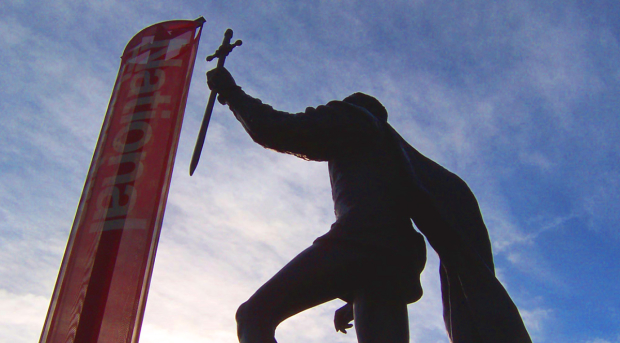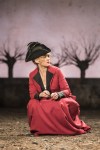Why today's theatremakers aren't suited to the Olivier
Sarah Crompton reflects on the reasons why the Olivier has had such a tumultuous year

© Hulk, Smash / Flickr
The onset of December will inevitably bring many lists: the best of this, the worst of that. The National Theatre, under the directorship of Rufus Norris, is likely to star in both categories.
If anyone were voting for theatre of the year, then the Dorfman would be a strong contender. It has consistently produced insightful and interesting productions and has been the venue for some of the year’s best plays: Lucy Kirkwood’s Mosquitoes, Nina Raine’s Consent and David Eldridge’s Beginning spring quickly to mind.
In the Olivier, on the other hand, the story is sadder. Whatever their merits – and they all had some – DC Moore’s Common, Yaël Farber’s Salomé and Rory Mullarkey’s Saint George and the Dragon must count amongst the year’s most high-profile misfires. All exposed their makers to the vast, unwelcoming maws of the theatre’s amphitheatre, relying on spectacle and verse to carry their message across the echoing spaces. All faltered. You particularly felt for Mullarkey, a young and promising playwright, whose attractive little play has been expanded and expounded to breaking point.
In today’s world, no one would build a theatre like the Olivier
All featured committed performances and fine design. But all were undermined by a fatal flaw: they felt as if they have been commissioned to fill a space and make a point, rather than arising from any urgent need to say something. That might not be the case, but that is how they felt to most people who saw them.
I don’t think, in today’s world, anyone would build a theatre like the Olivier. It was deliberately designed to replicate the imposing arenas favoured by the Greeks and the plays that have worked best on its stage have been either classical in tone and structure – or dramas that were written to emulate their impact, such as Peter Shaffer’s Amadeus and The Royal Hunt of the Sun. Shakespeare works well there (indeed, the National’s recent Twelth Night was a triumph), so does Shaw, Brecht and Ibsen. French farce can survive, and musicals thrive as the current success of Follies reveals; their bankability was the cornerstone of Trevor Nunn’s artistic policy for the theatre.
But once you get beyond revivals, things get more tricky. Today’s writers are more interested in the intimate than the epic. Today’s directors, trained in studio theatres rather than old regional barns, are mostly more comfortable with delicate effects than grand gestures. Today’s actors are naturalists, not barnstormers. There is a rumour that Lucy Kirkwood’s Mosquitoes – a play I feel would have filled the Olivier six times over given the massive nature of its themes and Katrina Lindsay’s simple but imposing design – was not staged there because Kirkwood herself felt it would not suit.
Enduring hits are surprisingly hard to come by in any space
Yet I still wonder if the problems the National is facing with the Olivier could be solved by thinking differently. It’s not as if the difficulties are new. The Olivier environment has always been particularly hostile to new work unless it is on the all-embracing emotional scale of War Horse. The lessons of history can be read pretty clearly. What do these plays have in common, for example? Peter Shaffer’s Yonadab, Fram by Tony Harrison, Her Naked Skin by Rebecca Lenkiewicz, Lorenzaccio by Alfred de Musset adapted by John Fowles, and the musical Jean Seberg? Answer: they all died a death on the stage of the Olivier, the last two in the same year 1983.
In fairness, it would be possible to make a similar list from the National’s other two auditoria. Enduring hits are surprisingly hard to come by in any space.
And it would also be easy to draw the wrong conclusions about what does and does not work on the Olivier stage. David Hare‘s magnificent state of the nation trilogy – Racing Demon, Murmuring Judges and Absence of War – was all staged there. It was characterised by the detail as well as the scope of its writing and by performances that were entirely and movingly naturalistic. Alan Ayckbourn‘s Chorus of Disapproval and – more unexpectedly – A Small Family Business both had the energy and power to animate the space. In the National’s early years, even Edward Albee got an outing in the big auditorium.
What unites such works is a sense of purpose; they were plays with an aim that the playwrights wanted to write. And they were beautifully written. Which makes me wonder what would happen if you started from the point of making sure you had a good play in your hands before committing it to the Olivier space. And in the meantime, being prepared to stage rather more of the classic world repertory which adapts much better to its traditional shape and intent.
















